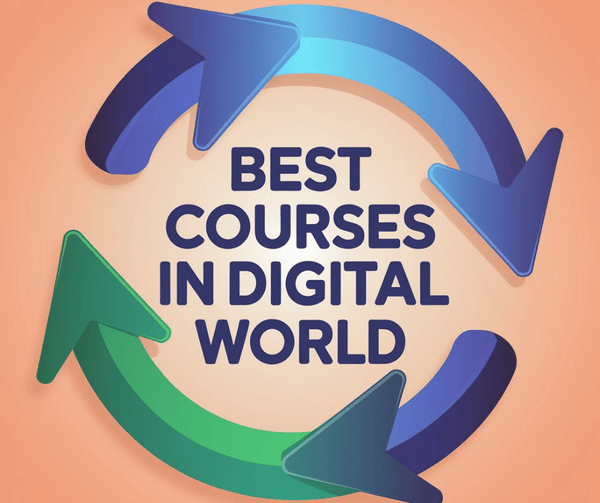
Switch Careers with eLearning

✨ Explore Guide to Switch Careers
Unlock career opportunities—gain skills and certifications online to switch paths and land your dream job!
View Platforms Details & Pricing
Why Change Careers?
- Burnout or dissatisfaction: A desire to move away from an unfulfilling or high-stress job.
- New interests or passions: Discovering a love for fields such as technology, creative arts, or entrepreneurship.
- Job market shifts: Automation or industry changes may reduce demand for certain roles, prompting a shift.
- Better growth opportunities: Some industries or roles offer faster career advancement and higher earning potential.
1. Why Online Learning Is Perfect for Career Changers

a. Flexibility and Convenience
One of the biggest advantages of online learning is the ability to study at your own pace. Whether you're balancing a full-time job, family responsibilities, or simply need time to think through your next steps, online courses allow you to tailor your schedule around your life.
b. Affordability and Accessibility
Traditional degrees can be expensive and time-consuming. Online learning platforms offer specialized certifications and courses at a fraction of the cost, which can help you acquire targeted skills quickly. With a wide array of platforms like Coursera, edX, Udemy, and LinkedIn Learning, the opportunities are nearly limitless.
c. Specialized Skills and Knowledge
The rapid advancement of technology has transformed industries across the board. A career in digital marketing, data science, UX/UI design, or coding might have been unimaginable when you first started working or studying. Online courses can provide the specialized, up-to-date skills that make it easier to pivot into emerging or niche fields.
2. How to Choose the Right Online Learning Path

a. Assess Your Current Skills and Gaps
Before diving into online courses, take a step back and evaluate your current skills.
What strengths can you leverage in a new field?
What specific skills are missing that would make you a more attractive candidate?
Knowing these answers can help you choose courses that are aligned with your goals.
b. Focus on High-Demand Fields
While it’s essential to follow your passion, keeping an eye on industry trends and high-demand skills can make the transition smoother. Sectors like data science, digital marketing, cybersecurity, and project management are thriving, and gaining skills in these areas can open doors to more lucrative opportunities.
c. Look for Accredited or Recognized Programs
Not all online programs are created equal. Look for courses that are accredited by reputable institutions or recognized in your desired industry. Some programs may offer industry-standard certifications that will enhance your resume and give you a competitive edge.
d. Consider Mentorship and Community
While online learning can feel solitary, many programs offer opportunities to connect with peers and instructors. Some platforms even offer mentorship programs where you can receive guidance from experts already working in your desired field. Networking through these programs can be a key advantage as you switch careers.
3. Choose the Right Online Learning Platform
✨ Explore Guide to Switch Careers
Unlock career opportunities—gain skills and certifications online to switch paths and land your dream job!
View Platforms Details & Pricing
4. Making the Most of Your Online Learning Experience

a. Set Clear Goals
Define what you want to achieve from your online learning. Whether it’s a new certification, a portfolio of projects, or gaining a specific technical skill, having clear goals will keep you motivated and focused.
b. Create a Structured Learning Routine
It’s easy to get overwhelmed with the flexibility of online learning. Design a study schedule that fits into your lifestyle. Consistency is key to completing courses on time and retaining what you’ve learned.
c. Apply What You Learn
Theory is valuable, but practical application solidifies new knowledge. Look for opportunities to apply your skills in real-life settings—whether it’s through freelance projects, internships, or even volunteering. This hands-on experience will be critical when making a career change.
d. Build a Portfolio
A well-rounded portfolio can speak volumes during a career change. Document your projects and coursework, whether through a personal website or platforms like GitHub (for developers) or Behance (for designers). Showcasing your work will give you credibility as you navigate the job market in your new field.
5. Overcoming Challenges During Career Change

a. Dealing with Imposter Syndrome
Switching careers can be intimidating, especially when you're venturing into a completely new field. It’s normal to feel like an imposter at times. Remind yourself that everyone starts somewhere, and online learning is a step toward expertise.
b. Balancing Learning with Other Commitments
Many career changers juggle full-time jobs or family responsibilities while learning new skills. Time management and setting realistic expectations for your progress are crucial to avoid burnout. Use tools like time-blocking or Pomodoro techniques to maximize focus and productivity.
c. Staying Motivated
Long-term motivation can be challenging, especially when learning new concepts. Celebrate small victories, stay connected with peers, and keep your end goals in mind. This will help you push through the more challenging moments.
6. The Future Is Yours: Take the First Step

Switching careers is a bold move, but with the right approach and tools, it can also be incredibly rewarding. Online learning empowers you to take control of your future, giving you the skills and confidence needed to navigate uncharted territory. Whether you're looking to break into a new industry or simply want to explore new passions, the wealth of online learning options is at your fingertips.
Have you ever considered an online course for a career switch?
What platform or subject are you leaning towards?
Share your thoughts or questions below!
✨ Explore Guide to Switch Careers
Unlock career opportunities—gain skills and certifications online to switch paths and land your dream job!
View Platforms Details & Pricing
🔍✨ Explore Related Topics
📝💡 Related Blogs
📚🗂️ Related Collections
Share
- Choosing a selection results in a full page refresh.
- Opens in a new window.
